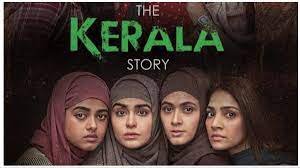Title: Vani Tripathi Slams West Bengal Government’s Ban on “The Kerala Story” as an Attack on Democracy
Introduction:
The recent decision by the West Bengal government to ban the film “The Kerala Story” within the state has sparked controversy and drawn strong criticism from actor and Central Board of Film Certification (CBFC) member, Vani Tripathi. In a candid interview, Vani Tripathi expressed her concerns regarding the ban, emphasizing the importance of allowing people to make their own decisions about the films they choose to watch. She condemned the move as undemocratic and raised questions about the freedom of artistic expression.
The Ban and Vani Tripathi’s Reaction:
“The Kerala Story,” a film that had garnered significant attention for its portrayal of social and political issues, found itself at the center of a heated debate when the West Bengal government decided to ban its exhibition in the state. This decision, aimed at curtailing its reach and impact, sparked outrage among artists, activists, and intellectuals, who saw it as a direct attack on freedom of expression and artistic liberty.
Vani Tripathi, a prominent figure in the Indian film industry and an active CBFC member, was quick to react to the ban. In her interview, she stressed that the power to evaluate and determine the suitability of a film should lie with the viewers themselves. By depriving the people of West Bengal of the opportunity to watch and form their own opinions about the film, the government was not only undermining their right to freedom of expression but also patronizing their ability to make informed decisions.
Tripathi labeled the ban as undemocratic, raising concerns about the growing trend of curbing dissenting voices and stifling artistic creativity in the country. She argued that cinema is a powerful medium for exploring diverse perspectives, raising social consciousness, and challenging the status quo. By silencing such narratives, governments risk creating an environment devoid of critical thinking and dissent, which ultimately hampers the growth and progress of a society.
The Importance of Freedom of Expression:
The ban on “The Kerala Story” highlights a larger issue concerning the freedom of expression in India. While reasonable restrictions on content may be necessary to prevent the incitement of violence or the spread of hate speech, it is crucial to strike a balance that allows for creative expression and the exploration of challenging subjects. Artistic endeavors often serve as a mirror reflecting the complexities of society, and stifling them curtails the scope for growth, understanding, and dialogue.
Vani Tripathi emphasized the need for a robust system that encourages open conversations and critical thinking about the films produced. The role of the CBFC, she argued, should be to guide and certify films based on the age-appropriateness of their content rather than imposing subjective opinions or political biases. The audience should have the freedom to accept or reject a film based on their individual sensibilities and tastes.
Conclusion:
The ban on “The Kerala Story” by the West Bengal government has once again ignited a debate surrounding freedom of expression and artistic liberty in India. Vani Tripathi, a renowned actor and CBFC member, has strongly criticized the move, emphasizing the importance of allowing people to make their own decisions regarding the films they choose to watch. By labeling the ban as undemocratic, she has drawn attention to the growing trend of curbing dissenting voices and stifling artistic creativity in the country.
The incident serves as a reminder that protecting freedom of expression is essential for the growth and progress of a democratic society. It is through open conversations, diverse perspectives, and the exploration of challenging subjects that societies evolve and develop. The need of the hour is to foster an environment that encourages artistic expression, promotes dialogue, and respects the rights of individuals to engage with and evaluate creative content on their own terms


